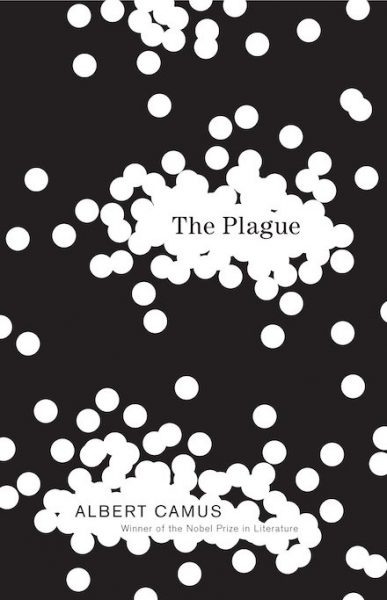There are two kinds of people during a pandemic: Those who read “The Plague” by Albert Camus, and those who don’t. I, like thousands if not millions of others, am in the first category. I’ve always been a fan of Camus, but I had never read “The Plague,” which, for those who don’t know, is a novel about how a handful of residents in the French Algerian city of Oran respond to the bubonic plague. Published in 1947, and wholly a work of imagination – there was neither a plague in Oran in the 20th century nor did Camus ever live through a plague or pandemic — it garnered Camus the Nobel Prize for Literature ten years later.
Some read “The Plague,” called “La Peste” in the original French, as an allegory for the disease of Nazism that infected France in the late 1930s and early 1940s, and there certainly are passages in the book that support this reading. But I read “The Plague” as something of a how-to manual – how to live through a pandemic and a shutdown, which Camus himself never had to do. As it turns out, the novel is awash in contemporary resonance.
At first, government authorities refuse to acknowledge or respond to what is plainly evident, that plague has struck their city and harsh measures need to be taken to stop its spread. After bodies begin to pile up faster than they can be buried, there is no denying what is taking place. As the pestilence spreads, hotspots develop in the poorer, more densely populated sections of town, defying the truism that a pandemic is a great equalizer. As Camus writes,
“Whereas plague through its impartial ministrations should have promoted equality among our city’s folk, it now had the opposite effect and, thanks to the normal play of different forms of selfishness, it sharpened the sense of injustice in the hearts of mankind.” To make matters worse, food shortages and other broken links in the supply chain bring about typical Capitalist solutions like profiteering and smuggling, further endangering the lives of the poor and the working class.
At one point, Dr. Rieux, the protagonist of the novel, says “This whole thing is not about heroism. It may seem a ridiculous idea, but the only way to fight the plague is with decency.” Another character asks what decency is. “Doing my job,” the doctor replies.
The novel also contains one of my favorite sentences of all time: “All of our troubles spring from our failure to use plain, clear-cut language.” You can only have plain, clear-cut language when you have plain, clear-cut thinking. Disordered speech is a symptom of a disordered mind.
Camus gives the last words to Dr. Rieux, after the plague has subsided and the citizens of Oran celebrate their ability to once again gather in public, go to restaurants, to leave the city or to have loved ones reunite with them in the city:
“Indeed, as he heard the cries of delight rising from the city, Rieux remembered that this delight was always threatened. For he knew what this joyous crowd did not, and what you can read in books — that the germ of the plague never dies or disappears, that it can lie dormant for decades in furniture and linens, that it waits patiently in rooms, in basements, in trunks, among handkerchiefs and paperwork, and that perhaps the day would come when, for the sorrow and education of men, the plague would revive its rats and dispatch them to die in a happy city.”
Read literally or metaphorically or, as I think Camus meant it to be read, as both, perhaps that’s a fate we can avoid with some clear thinking and some plain, clear-cut language. But I doubt it.

